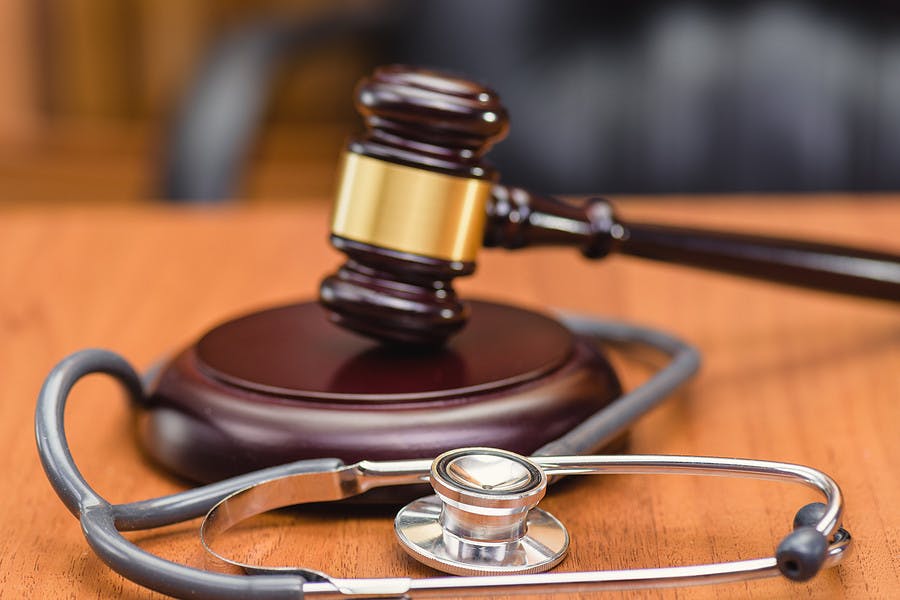One of the first priorities for any business is to always ensure the safety and wellbeing of its employees and customers. This principle has been put to the test like never before since the onset of Covid-19. However, given that there have now been 1,164 COVID-related lawsuits filed against employers, businesses need to ensure that they are not only making their workplaces Covid-secure but also litigation-safe.
The Types of Covid-Litigation Cases Businesses Face
It’s not just litigation related directly to contracting Covid in the workplace that employers need to be mindful of. Potential claims can include:
- Infections — where an employee contracts the virus in the workplace as a result of inadequate policies and protection. An employee would not only have to prove that there was a breach of care by the employer, but that this breach contributed to the infection. This is, of course, extremely difficult to prove this, since determining where someone caught Covid can be almost impossible.
- Privacy violations — where an employer discloses an employee’s Covid-19 infection to other employees when contact-tracing. This could breach ADA privacy protections.
- Physical and psychological injuries due to poorly reallocated work — where an employer has to reallocate work due to other employees being off work as a result of Covid-19, which then leads to injury. An example of this could be when a worker is asked to perform a task that they haven’t received adequate training to do, which results in physical injury. Or when an employee is expected to temporarily take on a role with much greater responsibilities, which results in stress and anxiety.
- Working from home injuries — where an employee is injured physically or psychologically due to a lack of advice and support provided by the employer. An example could be a back or wrist injury due to unsuitable workstation equipment.
- Discrimination — where terminated or furloughed employees of a protected class believe they received that action as a result of discrimination, rather than due to legitimate business reasons.
Understanding Employment Practices Liability Insurance Coverage
Your company’s employment practices liability insurance (EPLI) provides general coverage for employee litigation lawsuits. However, within the context of the above, you must evaluate your policy to ensure it provides the coverage you need. A few key areas to check include:
- Has the insurer issued any specific guidance on Covid-19 coverage?
- Are there exclusions against viruses, sickness, and disease?
- Are there exclusions against mental anguish or emotional distress?
- What are the self-insured retention amounts and deductibles for the above types of claims?
- What are the clauses within the general-conditions section, with regards to the obligations and responsibilities of the employer?
- What are the reporting requirements for employers to support claim submissions?
Practical Steps to Protect Your Business
There are a number of initiatives that HR leaders can champion to protect their businesses against the above types of litigation (beyond the basics in terms of CDC, federal, state, and industry-specific guidance, as your business is — or should be— already complying with these). Instead, here are some additional steps specifically aimed at reducing the risk of lawsuits from employees and customers:
- Enact a face-mask mandate. If you’re a customer-facing business, then stating that mask-wearing is mandatory while on the premises can afford you some protection, even if some customers flout the rule.
- Appropriately manage temporary job role changes. Ensure there is an appropriate consultation process between managers and subordinates when employees are being asked to temporarily step in and take on other responsibilities. This should assess their resource capacity and if any training is required.
- Invest in Covid symptom screening technology. Screening employees can be a lot simpler than many imagine. Mobile apps and websites enable employees to self-screen before entering the workplace. This can help reduce the spread of infection and provide a real-time audit trail of all employees.
- Conduct virtual home-workstation assessments. These assessments can determine if employees require any equipment to support their homeworking, such as office furniture or back and joint supports.
- Consider legal disclaimers or waivers. Some states have enacted liability shields (more on this below), which limit liability if businesses have followed all requirements and posted disclaimers. Waivers signed by customers or students have also been used in some settings. While not watertight, they can help to show that people were made aware of the risk.
- Enlist the help of legal counsel. Leverage either internal or external legal counsel to ensure your HR policies are fully compliant.
Liability Shields and Other Legal Developments
Lastly, an on-going development at both the state and federal levels is the introduction of liability shields for businesses. These make it much harder for employees or customers to sue businesses for Covid-related injuries by having to prove that a business has been grossly-negligent, rather than the current standard of proving the failure of reasonable care.
At the state level, more than a dozen states have already enacted some form of liability shield legislation. Meanwhile, at the federal level, a possible attachment to the next stimulus bill is the SAFE TO WORK Act, which would provide broad protection to businesses against “insubstantial lawsuits relating to COVID-19.”
It’s of course impossible for any business to protect itself against every lawsuit, but taking some simple extra steps can help to reduce the risk. And with legal provisions designed to provide more protections for businesses already enacted or in the works, we should hopefully start seeing a flattening of the curve with litigation cases.
